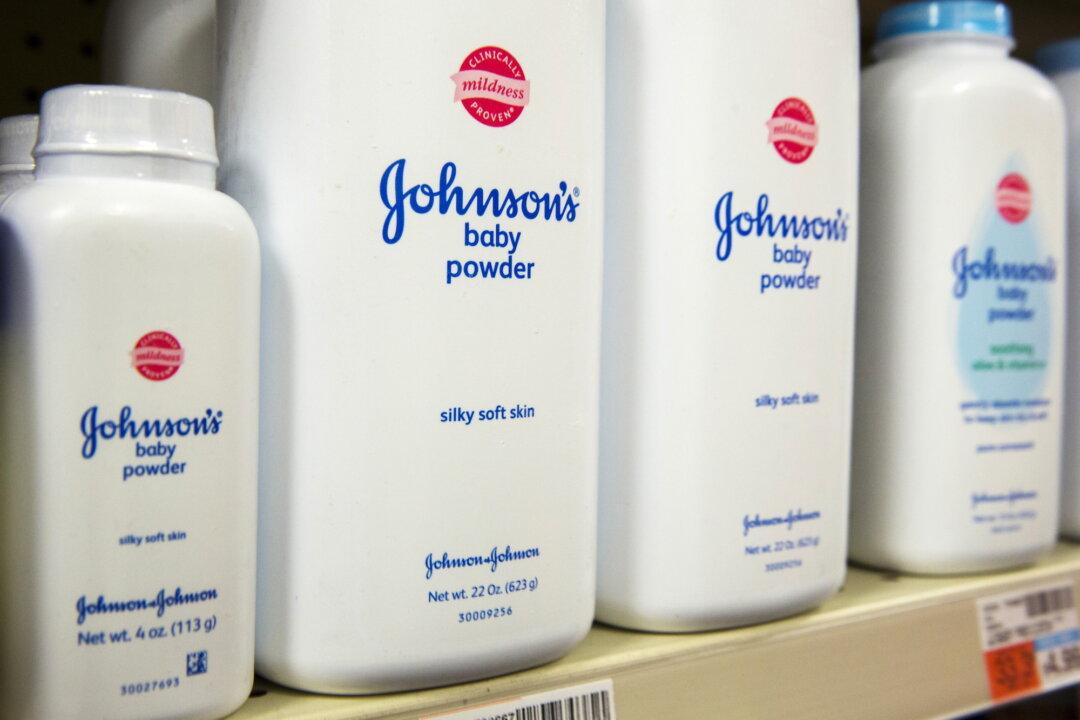The Supreme Court on Tuesday rejected an appeal by Johnson & Johnson to overturn a $2 billion verdict in favor of women who claimed the company’s talc product caused ovarian cancer.
The ruling leaves intact a Missouri court decision to award the women the sizeable sum after a jury found that the company’s talc products contain asbestos and that asbestos-laced talc can cause cancer of the ovaries. The initial verdict was for $4.7 billion, but a Missouri appeals court reduced the award to $2 billion and dropped two women from the lawsuit.





